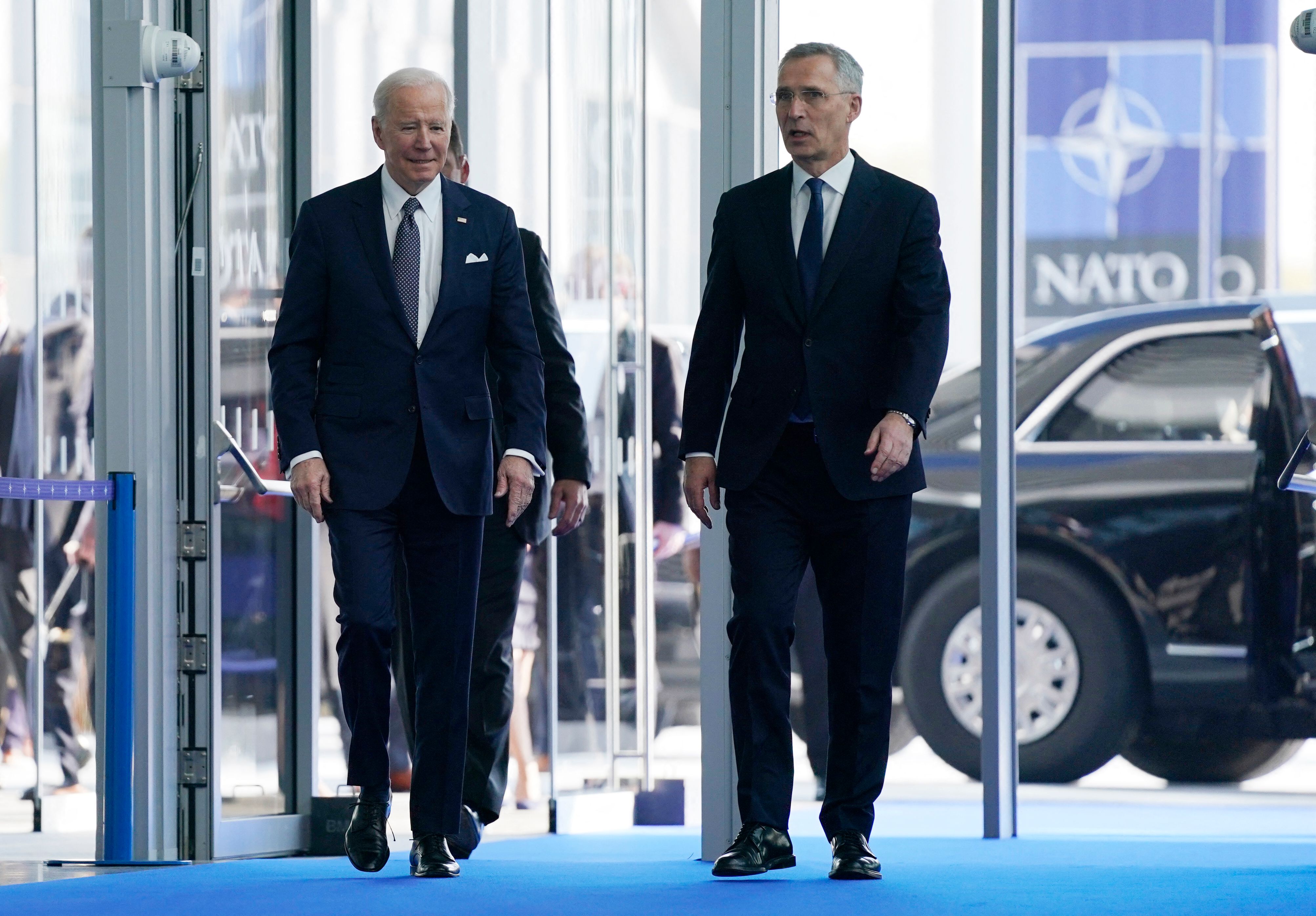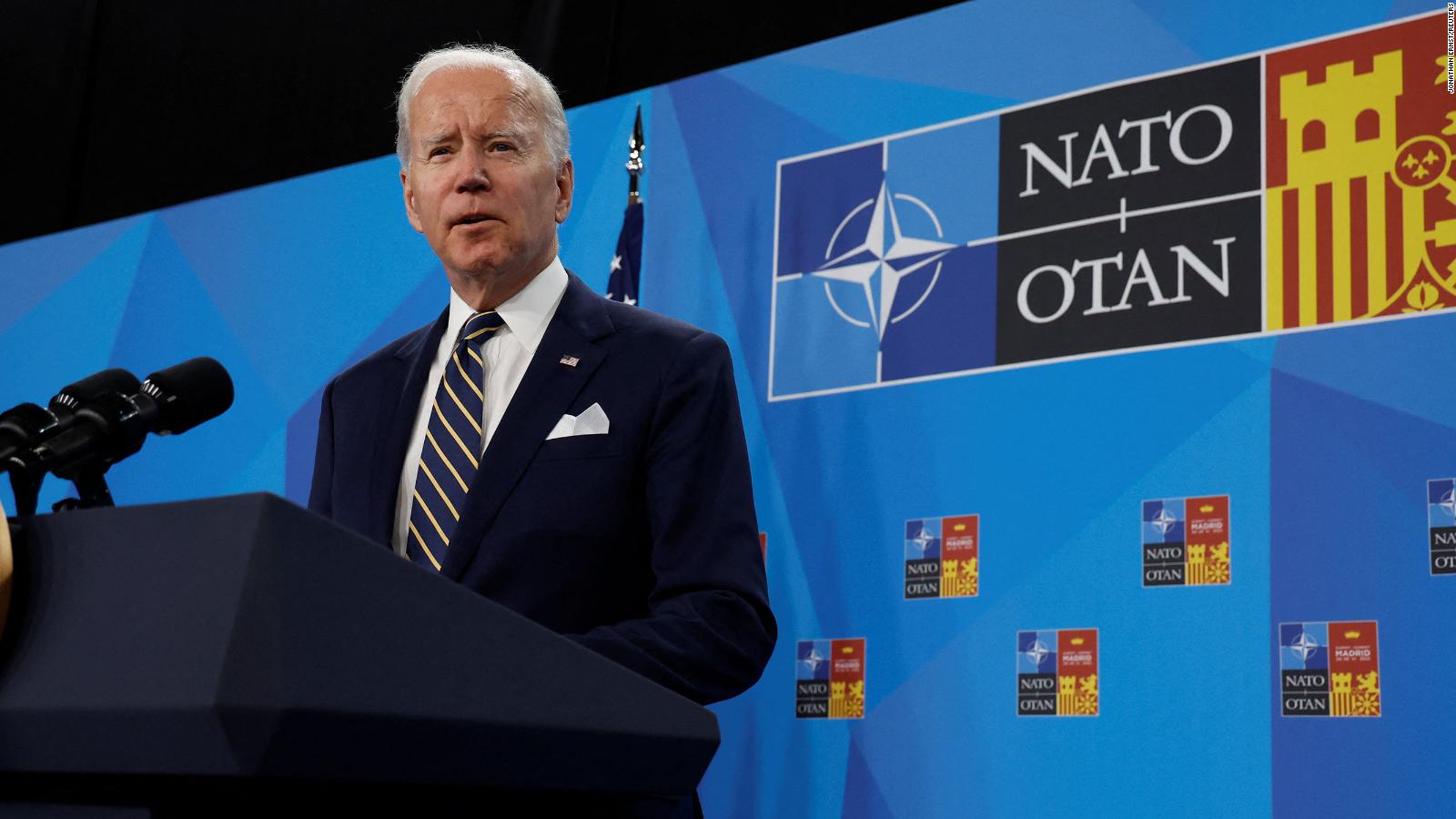Biden’s Commitment to NATO

Biden nato – President Biden has consistently emphasized the importance of NATO, reaffirming its central role in transatlantic security and collective defense. His commitment to the alliance is evident through his words and actions, signaling a departure from the previous administration’s approach.
Biden’s commitment to NATO is a testament to the enduring importance of the alliance. As he meets with fellow leaders in Brussels, he will underscore the need for continued unity and resolve in the face of ongoing challenges. Biden’s NATO agenda will focus on strengthening the alliance’s collective defense, addressing new threats such as cyber warfare, and promoting democratic values.
Actions Demonstrating Commitment
Biden’s commitment to NATO is reflected in several concrete actions:
- Rejoining the Paris Agreement and the World Health Organization, underscoring the importance of multilateral cooperation and restoring trust among allies.
- Hosting the NATO summit in June 2021, emphasizing the alliance’s enduring value and pledging to strengthen its capabilities.
- Increasing US troop presence in Europe, demonstrating a tangible commitment to collective defense and deterring potential adversaries.
Potential Impact on NATO’s Future
Biden’s policies are expected to have a positive impact on NATO’s future:
- Enhanced unity and cohesion within the alliance, based on shared values and common interests.
- Increased military readiness and deterrence capabilities, contributing to a more secure and stable Europe.
- Reinvigorated partnerships with key allies, fostering cooperation on a wide range of issues beyond traditional security concerns.
Challenges Facing NATO under Biden: Biden Nato

NATO faces several challenges under Biden’s presidency, including:
– Russia’s aggression: Russia’s annexation of Crimea in 2014 and its ongoing support for separatists in eastern Ukraine have raised concerns about NATO’s ability to deter Russian aggression.
– China’s rise: China’s growing economic and military power is seen as a potential threat to NATO’s security. NATO is concerned about China’s increasing assertiveness in the South China Sea and its development of new military technologies.
– Cybersecurity threats: NATO is facing increasing cybersecurity threats from both state and non-state actors. These threats include cyberattacks on critical infrastructure, espionage, and disinformation campaigns.
– Political divisions within NATO: NATO is facing political divisions over a number of issues, including defense spending, burden-sharing, and the future of the alliance. These divisions could make it difficult for NATO to respond effectively to future challenges.
– Resource constraints: NATO is facing resource constraints, which could limit its ability to meet future challenges. These constraints include budget cuts, manpower shortages, and aging equipment.
These challenges have a significant impact on NATO’s effectiveness. They make it more difficult for NATO to deter aggression, respond to crises, and maintain its technological edge. They also create political divisions within NATO and limit its resources.
To address these challenges, NATO needs to:
– Increase its defense spending: NATO members need to increase their defense spending to meet the challenges posed by Russia and China. This will allow NATO to invest in new military technologies, improve its readiness, and increase its resilience.
– Improve its burden-sharing: NATO members need to improve their burden-sharing by contributing more to the alliance’s collective defense. This will help to ensure that the costs of NATO’s operations are shared fairly among all members.
– Strengthen its cybersecurity defenses: NATO needs to strengthen its cybersecurity defenses to protect its critical infrastructure, networks, and data from cyberattacks. This will require NATO to invest in new cybersecurity technologies and to improve its cooperation with member states and the private sector.
– Address political divisions: NATO needs to address the political divisions within the alliance by finding common ground on key issues. This will require NATO leaders to engage in dialogue and to build consensus on the future of the alliance.
– Increase its resources: NATO needs to increase its resources to meet the challenges posed by Russia and China. This will require NATO members to contribute more to the alliance’s budget and to provide more troops and equipment.
NATO’s Role in the Russia-Ukraine Conflict

NATO has played a significant role in the Russia-Ukraine conflict, providing military assistance to Ukraine and imposing sanctions on Russia. The conflict has implications for NATO’s future, as it has exposed weaknesses in the alliance and raised questions about its ability to deter Russian aggression.
NATO’s Response to the Conflict, Biden nato
NATO has responded to the conflict by providing Ukraine with military assistance, including weapons, training, and intelligence. The alliance has also imposed sanctions on Russia, targeting its economy and individuals close to President Vladimir Putin. NATO has also increased its military presence in Eastern Europe, sending troops to reinforce its member states in the region.
Implications for NATO’s Future
The conflict has exposed weaknesses in NATO, particularly in its ability to deter Russian aggression. The alliance has been unable to prevent Russia from annexing Crimea and supporting separatists in eastern Ukraine. The conflict has also raised questions about NATO’s ability to defend its member states in the event of a Russian attack.
Potential Outcomes of the Conflict
The conflict could have a number of potential outcomes for NATO. One possibility is that the conflict will escalate, leading to a wider war between Russia and NATO. Another possibility is that the conflict will continue at a low level, with Russia continuing to support separatists in eastern Ukraine. A third possibility is that the conflict will be resolved through diplomacy, with Russia withdrawing its support for the separatists and Ukraine regaining control of its territory.
Biden’s unwavering support for NATO is a testament to the enduring importance of the alliance. With NATO members standing shoulder to shoulder, the alliance remains a cornerstone of global security, deterring aggression and promoting peace. Biden’s commitment to NATO underscores the United States’ unwavering belief in the power of collective action and the enduring value of transatlantic cooperation.